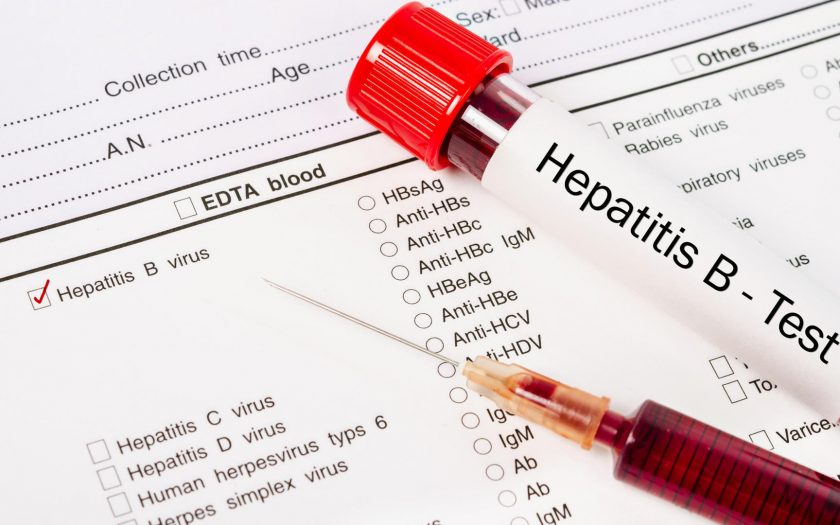Hepatitis B is a viral disease that is accompanied by liver damage.
The causative agent is the hepatitis B virus. The course can take a variety of forms: from virus persistence to progressive severe disease.
Symptoms of Hepatitis B
- Increased body temperature.
- Intoxication (general malaise, weakness, deterioration of well-being, fast fatigue).
- Dizziness.
- Deterioration of appetite, bitterness in the mouth, blistering.
- Pain in large joints (more often in the night and in the morning).
- Skin itching.
- Rash on the skin in the form of urticaria.
- Bleeding gums, nosebleeds.
- Increase in liver and spleen.
- Pain in the right hypochondrium.
- Development of jaundice (darkening of the skin, eyes, darkening of the urine to the color of firmly brewed black tea, with a lot of foaming), feces become lighter.
Causes
The source of infection is a sick person who carries the virus.
The epidemiological danger is blood, sperm, and saliva (in other biological fluids, the concentration of the virus is very small).
Risk groups include drug addicts, homosexuals, and heterosexuals with frequent changes in sexual partners.
Infection is possible in violation of the integrity of the mucous membranes and skin after contact with patients or carriers, with the common use of household items (eg: bed linen, scissors, razors).
Infection is possible as a result of medical (for example injection, gynecological examination, dental treatment) and non-medical (for example piercing, tattoo) manipulation, if the rules of sterilization of tools have been violated.
In the risk group, patients with hemodialysis (patients who are on the device “artificial kidney”), medical personnel, who often come into contact with blood (procedural nurses, gynecologists, dentists, surgeons).
Specifics
If the disease registers in the child of the 1st year of life, then the infection is most likely occurs from an infected mother.
The elderly people are seriously ill.
The peak incidence rate is in the age group of 20-49 years.
Treatment
Most often the patient is hospitalized and appointed a complex of therapeutic procedures.
- Antiviral drugs (Tenvir-EM, Lamivir, SoviHep)
- Detoxication therapy (administration of drugs that reduce intoxication of the liver and contribute to the elimination of toxins released by the virus, for example, 10% glucose).
- Antibiotics when there is additionally attaching a bacterial infection.
- General strengthening therapy (reception of vitamin and mineral complexes, etc.).
- Hepatoprotective (drugs that protect liver cells).
- Strict compliance with the diet: alcohol, confectionery, chocolate, spicy seasoning, pork, lamb, roasted, smoked and canned foods are prohibited.
Prevention
- Thorough donor blood test.
- Strict adherence to sterilization rules for medical instruments.
- For medical staff is very necessary for compliance with the rules of personal protection (wearing glasses, bandages, gloves).
- Sanitary and educational work among the population (information about the risk of sexual intercourse, the risk of infection in the use of drugs).
- Use of barrier contraceptives (condoms).
- Examination of pregnant women, people who receive inpatient treatment.
- Vaccination (possibly a re-vaccination in 5-7 years, if the level of protective antibodies in the blood decreases).

